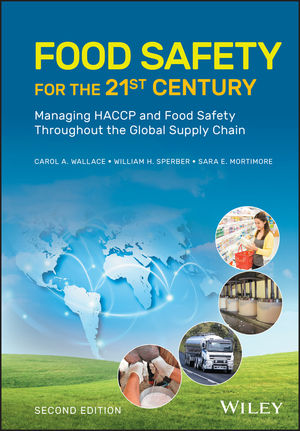How cobots provide around-the-clock food production
For the factory workers, it has been a real eye-opener that robots can be so simple to use.

Atria Scandinavia is one of Northern Europe's leading manufacturers of vegetarian and gourmet products for convenience markets and retail chains in need of around-the-clock service.
To do so, many of the 30 employees at Atria's Skene, Sweden, factory work side-by-side with three robot arms from Universal Robots (UR), Ann Arbor, Mich.
Challenge:
Each day, shrimps, olives, artichoke hearts, sun-dried tomatoes, garlic and other specialties are marked with labels, packed and palletized at Atria Scandinavia. This process has now been optimized with collaborative robot arms, enabling each production line to prepare on average 228 items per hour for delivery. The payback period on the robots is just one year.
"Our goal is to get reliable product lines where we can produce efficiently and effectively while keeping our staffing costs down. As a food producer, it is extremely important for us to minimize downtime, so we can supply fresh goods at a competitive price. The UR robots are a great automation solution because they can run without safety fencing. It is a significant advantage that our employees can work right next to the robots and that they easily can adjust the robots when packing different types of products," says Johnny Jansson, Atria’s technical manager responsible for the integration of “cobots,” or collaborative robots.
Solution:
For the factory workers, it has been a real eye-opener that robots can be so simple to use. Atria purchased their UR robots from Edstrøm’s, the local UR distributor that offered introduction and training in the using the robots. But, even before the training started, Atria's technical department began to use the robots and built the first installation of two UR5 robots and one UR10 robot.
"We were all completely new to UR robots, and I was impressed that it was so easy to get started. They’re very different than other robot brands, as they are very logical and intuitive to work with," says Jansson.
The cobots have become a natural tool in Atria’s production process. The easy programming and operation saves the company a lot of time when changing from packaging shrimp to packaging olives.
"Before, it took six hours to convert to a different product, but with UR robots, changeovers happen in just 20 minutes," adds Jansson. "It simplifies the deployment of robots that we can build solutions for our production in-house. We can go back and forth between the workshop and the production line refining applications as we build them. For example, we developed a small wheel to fold the edges of the cardboard boxes that the food products are packaged in. This solution probably wouldn’t have been conceived if we had been sitting in front of a computer planning the robot application."
Thanks to the collaborative robots, Atria also optimized material usage in the packaging department, reducing carton waste by 25% since the first three cobots were implemented.
The installation of the first two robots from Universal Robots took two months, but the next robot installation will happen faster:
"Now that we’re familiar with the UR robots, we know how to easily integrate them. It should not take more than two weeks to get the next ones up and running," says Jansson.
Looking for a reprint of this article?
From high-res PDFs to custom plaques, order your copy today!








